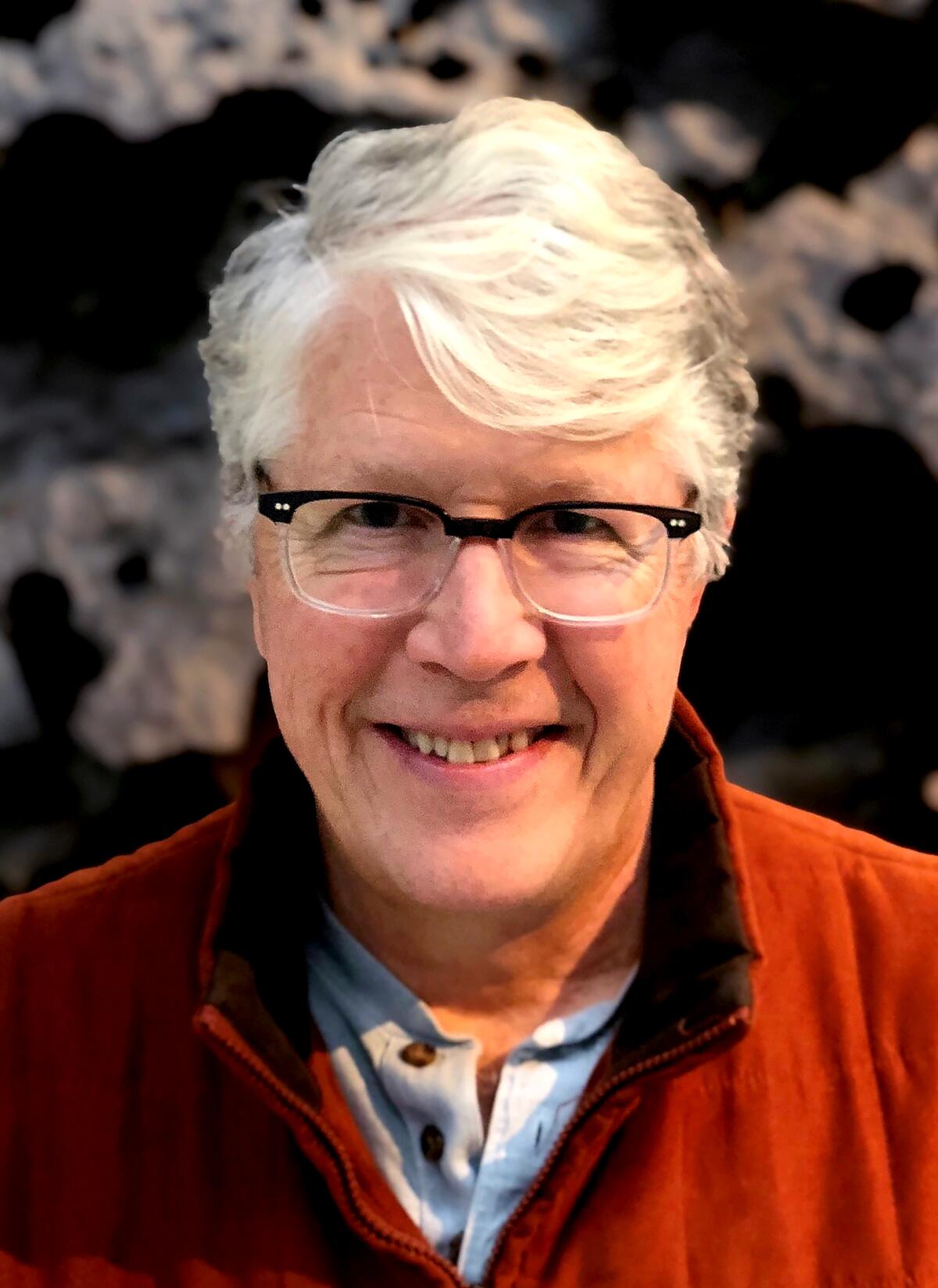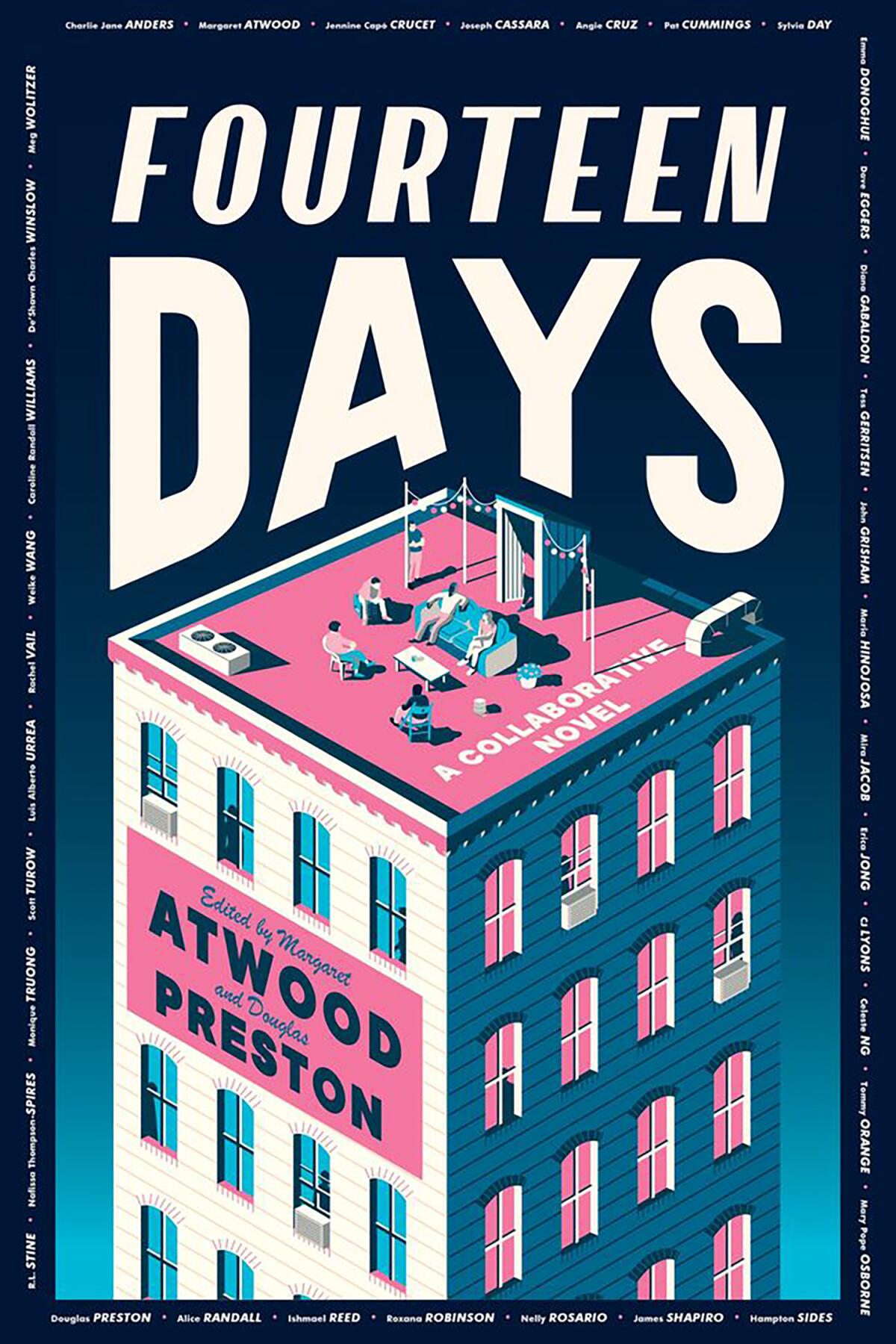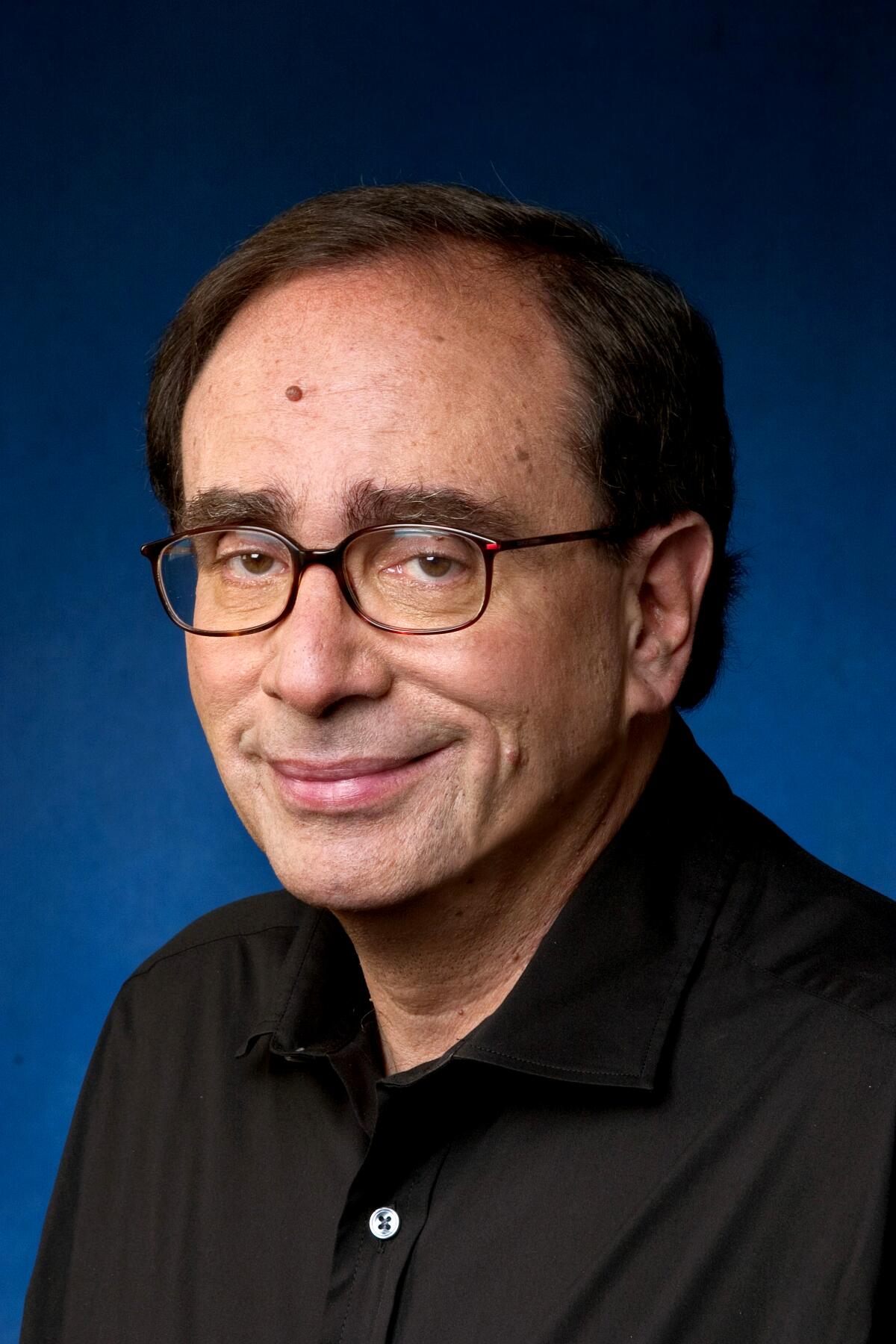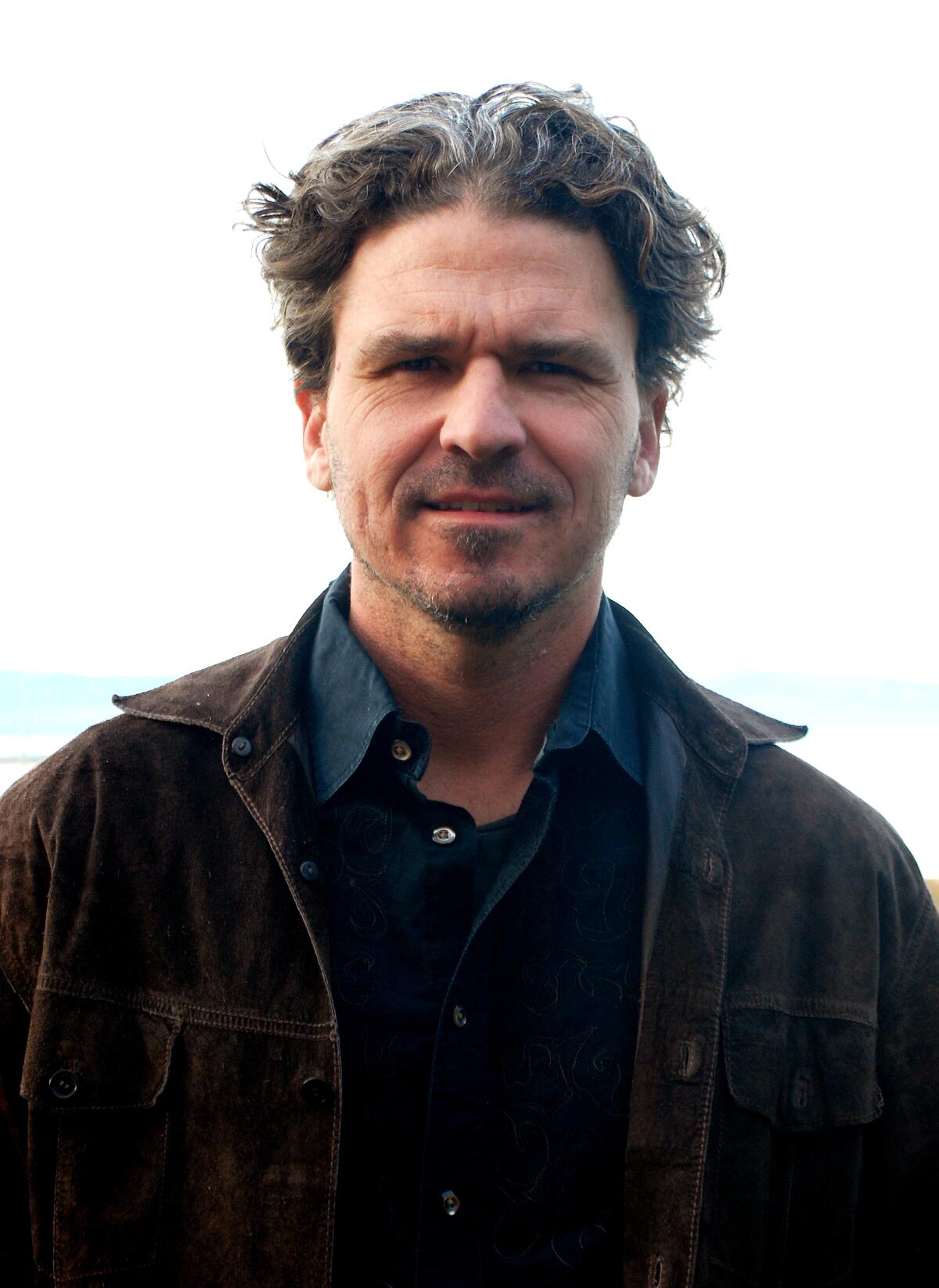In the dark days of the pandemic, 36 famous authors found light in a collaborative novel

On the Shelf
Fourteen Days
By the Authors Guild, Margaret Atwood and Douglas Preston
Harper: 384 pages, $32
If you buy books linked on our site, The Times may earn a commission from Bookshop.org, whose fees support independent bookstores.
During the pandemic, one of the most well-documented and poignant ways people paid tribute to first responders, healthcare workers and others who risked their own health and well-being was through the New York City evening “pots-and-pans symphony.”
For many, banging a spoon on a skillet could be done in isolation. However, as the spring of 2020 progressed, people found safe open-air spaces in which to gather and noisily acknowledge their brave fellow citizens who kept hospitals, care residences, clinics and grocery stores open and functioning.

So perhaps it’s not surprising that the Authors Guild, our nation’s longest-running and strongest-advocating organization for writers, chose to set its first collective-written book on a Manhattan rooftop.
Author and recent guild President Douglas Preston, who co-edited “Fourteen Days: A Collaborative Novel” with author Margaret Atwood, says, “The interesting thing about New York is that people are all mixed up there, even within the same buildings.” Preston, once a New Yorker himself, spoke via video conference from his home in Taos, N.M., and emphasized that all of the characters in “Fourteen Days” are “real people ... and not all of them are getting along. The idea is about diversity, and not just diversity of background or origin or thinking, but about diversity of genre.”
Diversity of genre doesn’t just refer to the book’s characters and the stories they tell while gathering each evening on the roof of their somewhat rundown apartment building, the Fernsby Arms; it also refers to the genres in which the book’s contributors write. Among the 36 authors whose names grace the “Fourteen Days” jacket are Dave Eggers, Celeste Ng, Scott Turow, Mira Jacob, Tommy Orange, Tess Gerritsen, R.L. Stine, Weike Wang and Ishmael Reed.

Obviously, “Fourteen Days” will be paradise for avid readers, but there’s one little twist that will make it even more interesting, and that’s the fact that the chapters themselves don’t have bylines. Each contributor was asked to submit a self-contained story of any length and in any style; the results would then be edited and placed into the framework Preston dreamed up long ago. “Many years ago I had this idea of writing a plague novel, sort of like Boccaccio’s ‘Decameron,’ ” says Preston. “And it was a disaster. It was terrible! When you’re a novelist, you often abandon things, and I abandoned it.
“But when the pandemic hit, I thought it might be an idea worth resurrecting, as a group storytelling project. I suggested it to a few colleagues, and they said, ‘Yes, let’s do it,’ but we have to tell the stories of the people who were left behind.”
Another contributor who is a longtime New York resident is “Goosebumps” author Stine, who echoes his good friend Preston’s thoughts about the city. “We all have different stories in New York, and we all live on top of one another,” Stine says from his Upper West Side home office, also via video conference. “And we all get along pretty well. That’s what America is supposed to be about.”

Which story and chapter Stine contributed to shall remain unidentified for the sake of future readers, but suffice to say it derives from his memories of how COVID-19 “made all of our lives smaller. I see fewer friends, I go fewer places. My life is just smaller than it was three years ago. For the characters in this book, coming up to the roof and sharing their stories was their entertainment.”
Some of the authors who answered Atwood’s call wrote completely original, new stories; others wrote stories that they had heard but never tried to write down, like Gerritsen. Her thrillers, which include the “Rizzoli & Isles” series, draw on her background as a physician. “I saw some pretty weird stuff,” Gerritsen says by telephone from her home in Maine, of her years as a doctor. “The story I chose to write and share is a true one, based on something that took place when I was working at a hospital in Hawaii.”
Like her colleagues on the project, Gerritsen is a member of the Authors Guild, “since 1990 or so, way back. I think this project arrives at a time when we really need to speak up as creatives, and I can also speak as a minority to say that I remember vividly the first time I felt seen in the pages of a book, the first time I saw not just a Chinese person in a book but an American Chinese person in a book. I now had a place, that’s how I felt. In this book, there are characters of all different backgrounds, and I think for young people, seeing that characters who are like them exist is going to be very comforting.”
The Authors Guild will use the book’s proceeds to support educational programs and advocacy work for writers. Its new executive director, Deborah Wilson, says the “stories and perspectives shared are powerful and moving, representing a range of voices. We are also excited to be in early discussions about possible film and TV adaptations that could bring these stories to life in new ways.”

“Those of us who publish books can expect to see a dollar or two every time one of our books is sold, and that’s in large part because the guild has always been out front, making sure that piracy is not allowed, that copyright protections are there and that we are not replaced by AI,” says Eggers, founder of McSweeney’s and author of books including “Zeitoun” and “The Circle.”
Eggers, speaking by telephone from California, says, “Anything the Authors Guild wants me to do, I’m there, because without them we don’t exist.” He also thinks that this project’s magnitude, “where you can, as a reader, stay involved all the way through knowing there’s a common thread, was a really brilliant solution to fitting together a few dozen writers.”
“During the pandemic, we really had far more time to listen to each other. When the day-to-day is broken up and schedules exploded, you have more time, or at least it felt that way,” says Eggers, who delivered for his local food bank throughout quarantine and isolation, and in the process saw people “relying on and listening to and knowing each other more than before.”
While members of the Authors Guild rely on the organization for education, advocacy and benefits, members, like those who contributed to “Fourteen Days,” know that readers rely on them for information and entertainment. Preston, who worked with at least two different in-house editors during the book’s multiyear development, believes that readers will find all of those in the tenants’ tales.
“Some of the characters tell their stories reluctantly. Some of the stories are about scary things, some of them are confessionals, some are truly beautiful. There are stories of love, loss and memory. And, finally, there’s a big surprise at the end of the book.” Preston’s face lights up with a huge smile. “I can’t wait for people to read it.”
Patrick is a freelance critic, podcaster and author of the memoir “Life B.”
More to Read
Sign up for our Book Club newsletter
Get the latest news, events and more from the Los Angeles Times Book Club, and help us get L.A. reading and talking.
You may occasionally receive promotional content from the Los Angeles Times.









